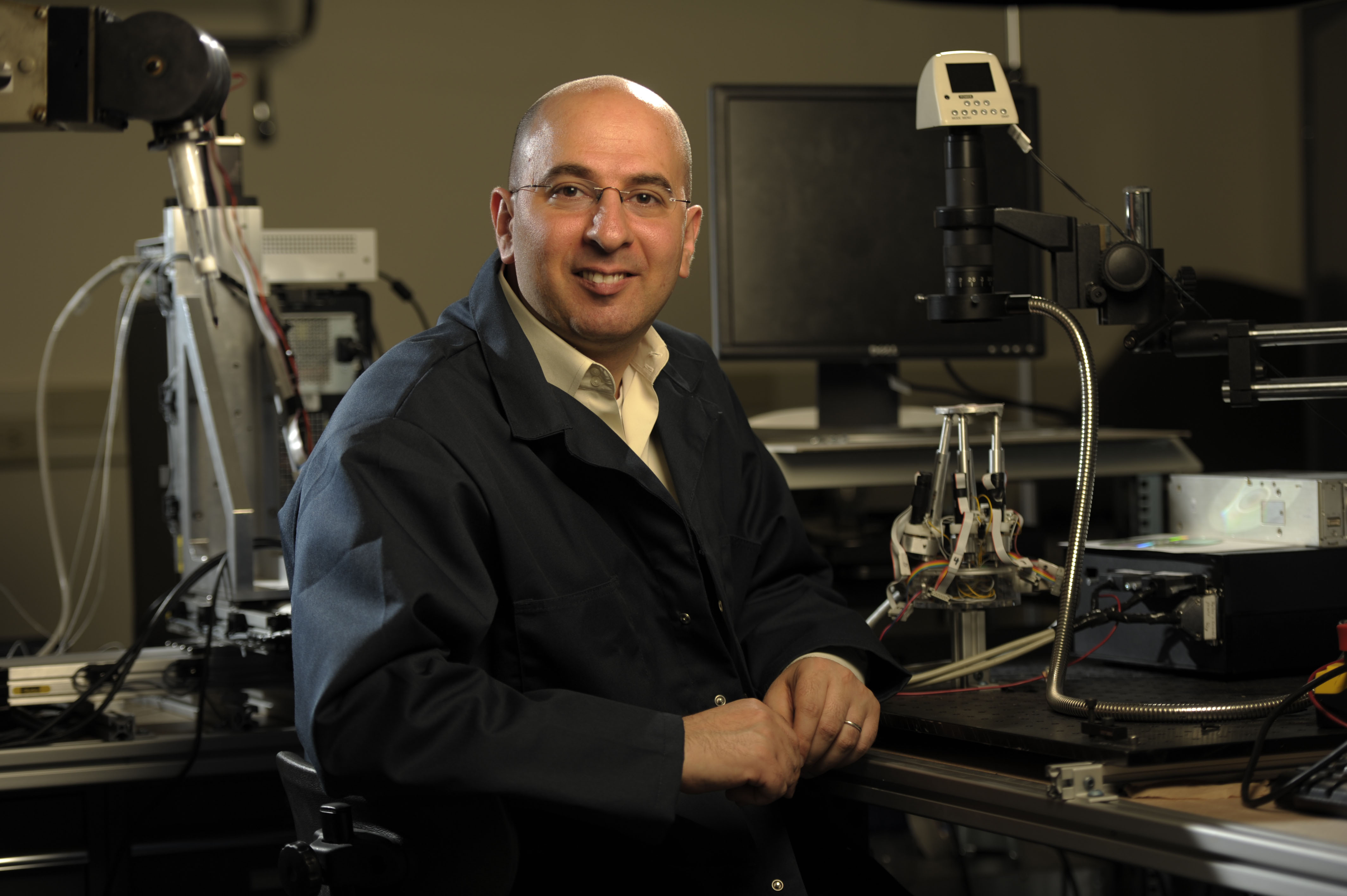 |
Dr. Nabil Simaan |
| Professor | |
| Dept. of Mechanical Engineering | |
| Vanderbilt University | |
| Office: 405 Olin Hall | |
| Tel: 615-343-0470 | |
| E-mail: nabil.simaan |
Background:
I received the B.Sc., M.Sc., and Ph.D. degrees in mechanical engineering from the Technion—Israel Institute of Technology, Haifa,Israel, in 1996, 1999, and 2002, respectively. My Masters and Ph.D. research focused on the design, synthesis, and singularity analysis of parallel robots for medical applications, stiffness synthesis, and modulation for parallel robots with actuation and kinematic redundancies. My Graduate advisor was Professor Moshe Shoham. In 2003, I was a Postdoctoral Research Scientist at Johns Hopkins University National Science Foundation (NSF) Engineering Research Center for Computer-Integrated Surgical Systems and Technology (ERC-CISST), Baltimore, MD, where I focused on minimally invasive robotic assistance in confined spaces under the supervision of Professor Russell H. Taylor. In 2005, I joined Columbia University, New York, NY, as an Assistant Professor of mechanical engineering and the Director of the Advanced Robotics and Mechanisms Applications (ARMA) Laboratory. In 2009 I received the NSF Career award for young investigators to design new algorithms and robots for safe interaction with the anatomy. I was promoted to Associate Professor in 2010 and subsequently, I Joined Vanderbilt University in the Fall semester of 2010.
During the course of my research, I designed and constructed compact parallel robots for medical applications and compact and down scalable surgical slaves for minimally invasive surgery of the throat and upper airway. My current research interests include synthesis of novel robotic systems for surgical assistance in confined spaces with applications to minimally invasive surgery of the throat, natural orifice surgery, cochlear implant surgery, dexterous bimanual microsurgery, and retinal micro-surgery.
Professional Service:
I am a Fellow of the IEEE and a member of ASME. I served as an Associate Editor for IEEE Transactions on Robotics (TRO), as a member of the CEB for Robotica, and as an Editor for IEEE ICRA2013 and ICRA2015, IROS2016 & 2017. I also served as an Area Chair for RSS'2014 and RSS'2015 (Robotics Science & Systems). I am a corresponding co-chair for IEEE Technical Committee on Surgical Robotics. I also currently serve as an associate editor for ASME Journal of mechanisms & robotics. In the past I served as an associate editor for IEEE International Conference on Robotics and Automation and IEEE International Conference on Biomedical Robotics and Biomechatronics (Biorob).
Research Interests:
Broadly speaking, I am interested in medical applications of surgical robotics and intervention. My current applied research interests include synthesis of novel robotic systems for surgical assistance in confined spaces with applications to minimally invasive surgery of the throat, natural orifice surgery, cochlear implant surgery, and dexterous bimanual microsurgery. Theoretical aspects of my research include theoretical kinematics of mechanisms, synthesis and optimization of robots and mechanisms, design of flexure mechanisms and flexible robots, parallel robots, applications of line geometry tools and screw theory for analysis and synthesis of robotic devices, applications of actuation redundancy and kinematic redundancy for stiffness control (modulation), applications of algebraic geometry methods for polynomial system solving related to mechanism designs, optimal path planning and insertion of flexible underactuated robots. Recently my research area has been expanding also in interdisciplinary directions that incorporate algorithmic aspects of robotics in the area of exploration in flexible environments and unstructured environments. One of the cores of my research is focused on developing algorithms for enabling intelligent surgical robots as a means to assist surgeons in adapting surgical plans based on in-vivo information gathered during surgery. A more recent area of research interest is in physical human-robot interaction within the context of medical applications and also within the context of manufacturing in confined spaces.
Educational Interests:
I am interested in creating novel curriculum that involved undergraduate and graduate students with hands-on learning experience for design, robotics, and medical robotics. I have previously taught and developed new courses on Computer-Aided Design, Machine Component Design, Introduction to Robotics, Advanced Topics in Robotics and Mechanism Synthesis, Dynamics, and Introduction to Medical Robotics.
In addition to supervising graduate students for research and teaching these courses, I welcome high-school students, undergraduate students, and science teachers. I try to define educational experiences that are complementary to ongoing research in the lab while introducing Matlab, Pro/Engineer, and other programming and science skills to students and teachers.
Past Projects:
- Remote Center of Motion Cooperative Manipulation Robot
- Developing Analysis Methods for Variable Geometry Parallel Robots for Stiffness Synthesis/Control
- Analysis and Synthesis of Parallel Robots for Medical Applications
- Old web sites: my personal web page at the robotics laboratory of the Technion.

